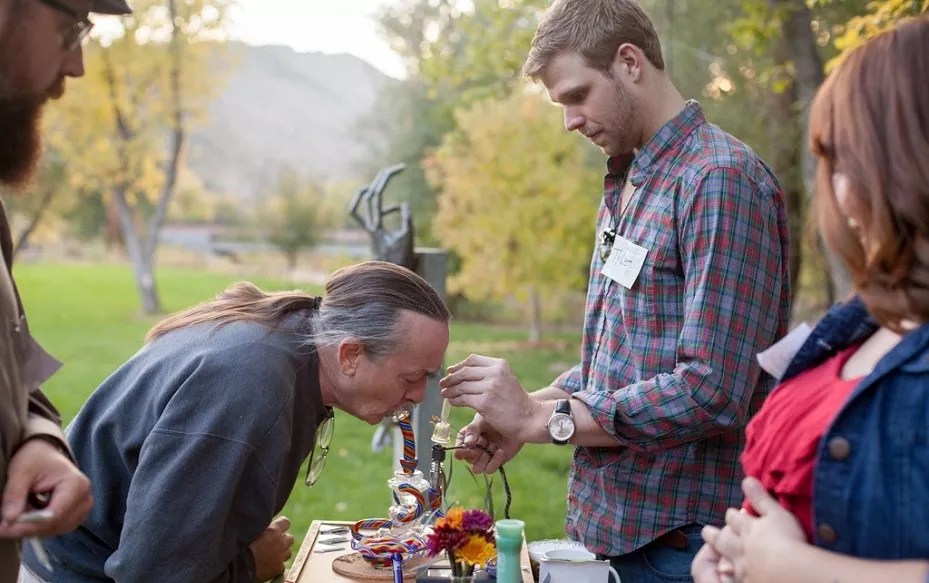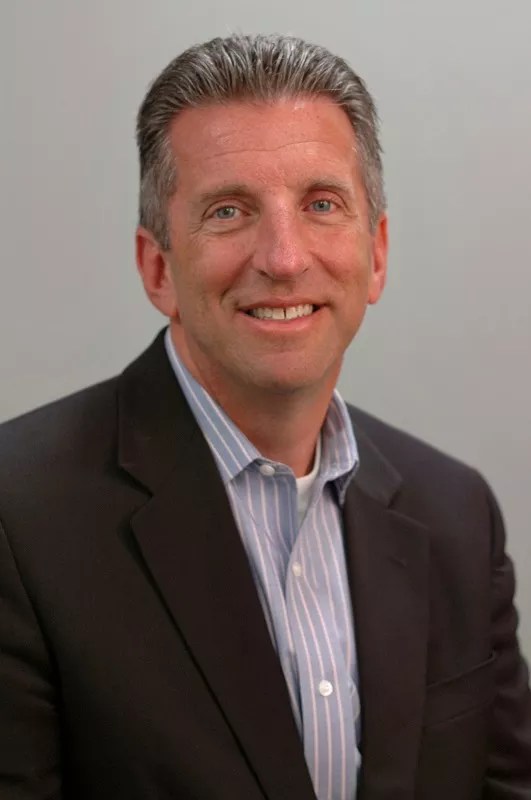
Jacqueline Collins

Audio By Carbonatix
The effects of legalized cannabis on Colorado are still being debated, but the state’s top health official believes that we’ve been pretty responsible about this pot thing. Dr. Larry Wolk has been the chief medical officer and executive director of the Colorado Department of Public Health and Environment since 2013, a period that includes the state’s implementation of regulated adult-use cannabis in 2014, and he’s confident enough about the process that he’s telling other states and even countries that not only has the sky not fallen in Colorado, but we’re actually doing all right.
In a recent radio interview in Canada – which has voted to legalize cannabis starting in July 2018 – Wolk said that Colorado’s public-health profile has remained virtually the same since retail cannabis opened for business in 2014. And when we asked for an interview to discuss that statement and more, Wolk’s stance didn’t change.
“We haven’t seen any dramatic changes from a public-health standpoint,” he explains. “The components of that answer are that we haven’t seen an increase in youth use or adult use, and we haven’t seen an increase in DUIs. We had a little blip as far as calls to emergency control and hospital-room visits, but much of that has leveled off and is explainable by other reasons.”
According to Wolk,

Dr. Larry Wolk
Courtesy of the Colorado Department of Public Health and Environment
most of the emergency-room visits for cannabis consumption involved people from out of state who knew little about edibles, which can take up to three hours to kick in. And while the Rocky Mountain Poison and Drug Center saw a rise in marijuana-related calls in 2014, the rise leveled off in 2015, according to the CDPHE, and the number actually decreased in 2016.
Although youth usage, impaired driving and emergency-room visits will always be issues to monitor, Wolk says that Colorado hasn’t seen a legitimate increase in any of the three since legalization. But he also believes there’s a significant need for more study. “You have to make sure you’re comparing apples to apples, and that there’s valid baseline data to compare with,” he says. “People can pick and choose what they want as data elements and use it to support a pro or con position. It’s our job as a regulatory agency to present data objectively.”
Now that Colorado is beginning to roll out its medical marijuana research-licensing program, one of the first of its kind in the nation, Wolk hopes to learn more about marijuana’s public-health effects. While the CDPHE won’t be actively running its own studies (licensees will have to apply with the state to conduct both public and private cannabis research), it will monitor licensee practices and run surveys to examine study results.
Wolk thinks legalizing cannabis has been a relative success for Colorado’s public health, but still has concerns about public and social use, and how they could affect youth-usage rates. “People have this notion that smoking marijuana is safer than smoking cigarettes. We don’t have enough data to support that claim,” he says. “Passive smoke can subject people potentially to harmful health effects. The concern with socialization is that it could be taking another step toward normalization, and that could trend toward higher youth numbers – but these are just questions and concerns. We don’t know if there’s a connection.”
Making sure that Colorado’s legal cannabis system succeeds requires that regulators check their egos and traditions at the door, Wolk adds. Trained as a pediatrician years before medical marijuana became a sizable practice, he, like many other lawmakers and regulatory officials, has had to disregard some old biases that much of his generation carries.
“Personally, I was trained traditionally as a pediatrician, and part of that training is that marijuana is bad, illegal, and we counsel patients against using marijuana,” he explains. “In a regulatory role in a state that’s legalized it, you have to park that as bias and be much more objective.”